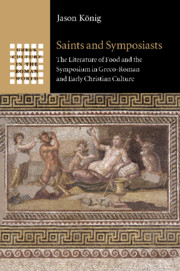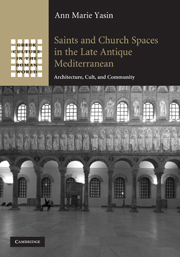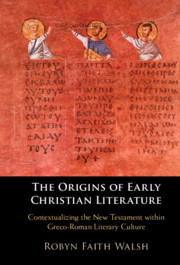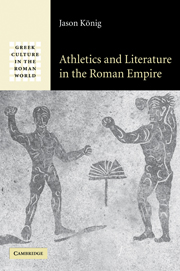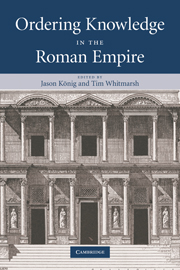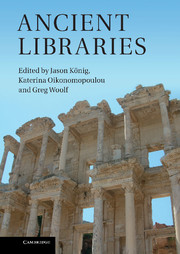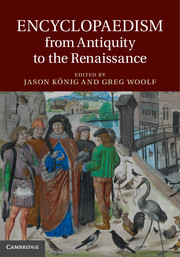Saints and Symposiasts
Greek traditions of writing about food and the symposium had a long and rich afterlife in the first to fifth centuries CE, in both Greco-Roman and early Christian culture. This book provides an account of the history of the table-talk tradition, derived from Plato's Symposium and other classical texts, focusing among other writers on Plutarch, Athenaeus, Methodius and Macrobius. It also deals with the representation of transgressive, degraded, eccentric types of eating and drinking in Greco-Roman and early Christian prose narrative texts, focusing especially on the Letters of Alciphron, the Greek and Roman novels, especially Apuleius, the Apocryphal Acts of the Apostles and the early saints' lives. It argues that writing about consumption and conversation continued to matter: these works communicated distinctive ideas about how to talk and how to think, distinctive models of the relationship between past and present, distinctive and often destabilising visions of identity and holiness.
- Extends our understanding of the symposium beyond the Archaic and Classical periods
- Discusses the Greco-Roman and early Christian literature of the Roman Empire side by side
- Provides a cultural-historical approach to the literary material discussed, setting it against the background of the social history of dining in the Roman Empire
Reviews & endorsements
'This valuable work brings together the Greco-Roman symposium, the literary forms that engaged with it, early Christian engagements and Christian debate in later antiquity over reuses of pagan forms or rejection of earlier luxurious ways. This excellent volume sets the 'social knowledge' of Athenaeus and Plutarch (matched with the inscriptions of the Greek cities of Asia Minor) against the purity and separateness of some early Christian thought; it richly explores 'talking with the dead' in pagan and Christian contexts (the great Greek past of Plato and Aristotle in Galen and Tertullian). Unmissable.' John Wilkins, The Journal of Roman Studies
Product details
May 2020Paperback
9781108820196
429 pages
150 × 230 × 20 mm
0.62kg
9 b/w illus.
Available
Table of Contents
- Part I. Conversation and Community:
- 1. Locating the symposium
- 2. Voice and community in sympotic literature
- 3. Plutarch
- 4. Athenaeus
- 5. Early Christian commensality and the literary symposium
- 6. Methodius
- 7. Sympotic culture and sympotic literature in Late Antiquity
- 8. Macrobius
- Part II. Consumption and Transgression:
- 9. Philosophers and parasites
- 10. Food and the symposium in the Greek and Latin novels
- 11. Food and fasting in the Apocryphal Acts
- 12. Food and fasting in early Christian hagiography
- Conclusion.

